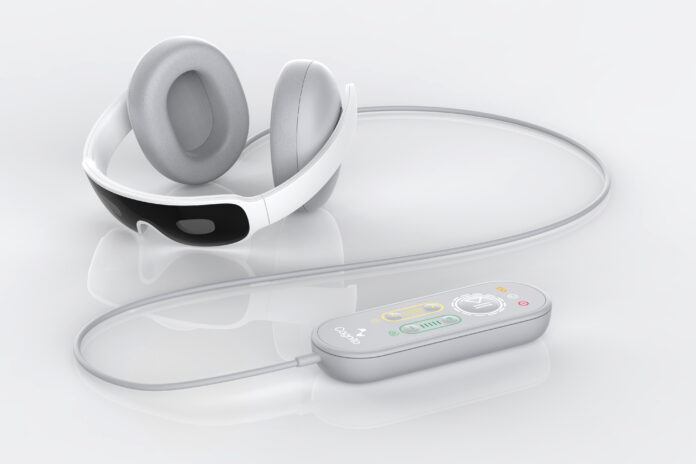CAMBRIDGE, Mass. — Cognito Therapeutics presented new clinical data at the Alzheimer’s Association International Conference (AAIC) 2025 highlighting the neuroprotective potential of its investigational therapy, Spectris™, in patients with Alzheimer’s disease. The findings suggest that the at-home neuromodulation device may significantly slow cognitive, functional, and structural decline.
Spectris, which delivers synchronized light and sound stimulation to induce gamma-frequency brain activity, was shown to preserve white matter and myelin integrity across multiple brain regions, according to MRI-based analyses from the OVERTURE feasibility trial and its open-label extension (OLE).
In the OVERTURE OLE, participants treated with Spectris experienced up to 9.9 months of “time saved” across key clinical and imaging endpoints over 18 months. Specifically, patients saw delays of 8.66 months in functional decline (as measured by the Alzheimer’s Disease Cooperative Study–Activities of Daily Living, or ADCS-ADL), 9.93 months in cognitive deterioration (Mini-Mental State Examination, MMSE), and 7.48 months in whole brain volume loss. All findings had a p-value of less than 0.0001.
“Spectris demonstrated consistent efficacy across multiple domains, including cognition, brain structure, and patient-centered outcomes,” said Christian Howell, CEO of Cognito Therapeutics. “These results support our vision for a safe and effective non-pharmacologic therapy that could redefine Alzheimer’s care.”
The company also reported statistically significant improvements in quality-of-life indicators using the “What Matters Most” (WMM) framework. Participants using Spectris showed less decline in 12 of 41 patient-reported items related to independence, communication, emotional stability, and social interaction. The WMM total score for Spectris was –0.59 compared to –15.12 for the placebo group (p=0.0006), suggesting a meaningful impact on daily living.
Spectris is designed as a non-invasive device for in-home use, requiring just one hour of daily application. At the conference, researchers shared data showing that over 85% of participants adhered to the prescribed treatment regimen. Additional results demonstrated that combining light and sound stimulation led to stronger and broader gamma oscillations than either modality alone.
Cognito is also partnering with Firefly Neuroscience to analyze EEG data from the OVERTURE trial using Firefly’s Brain Network Analytics (BNA™) platform. The collaboration aims to identify biomarkers that can predict patient response to Spectris and track brain network changes that correlate with clinical and imaging outcomes.
“These findings deepen our understanding of Spectris’ neuroprotective mechanisms,” said Dr. Ralph Kern, Chief Medical Officer at Cognito. “We’re seeing alignment across clinical, imaging, and neurophysiological measures that further validate our approach.”
Spectris is currently being evaluated in the fully enrolled HOPE pivotal trial (NCT05637801). The device remains investigational and is not yet approved by the U.S. Food and Drug Administration or any other regulatory authority.


